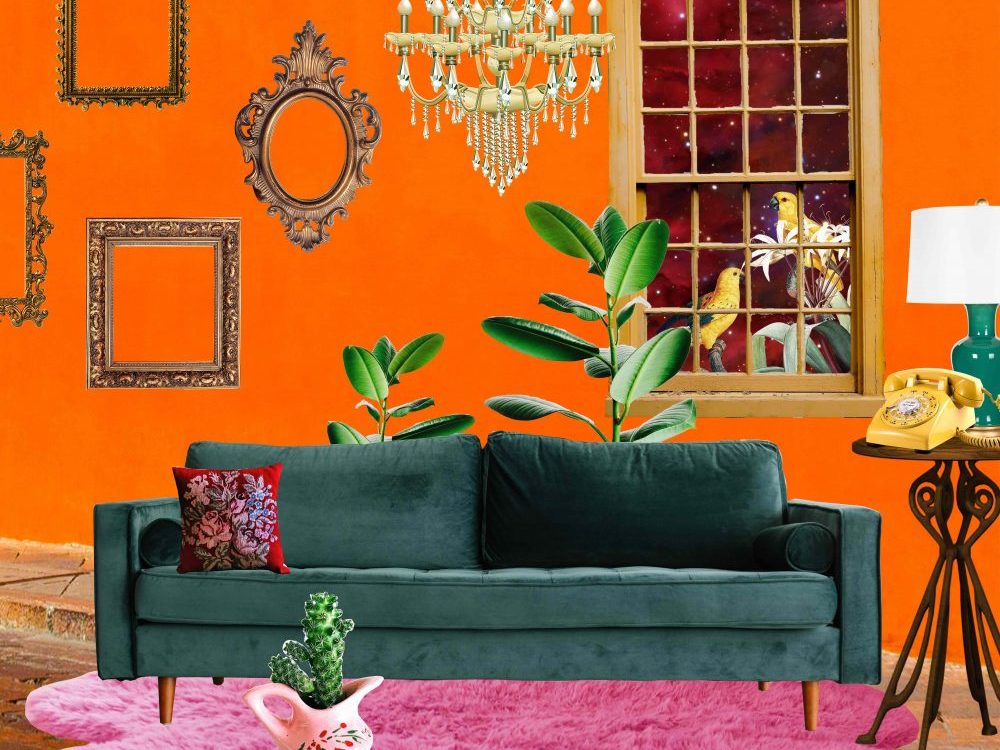I used to get jealous when I’d see people on TV sleeping in the bedroom they had first come home from the hospital to; notches on the doorframe marking their progress. What must that feel like, to have that certainty? To have cardboard boxes in the storage spilling over with the remnants of all the people you used to be?
All of my homes were temporary. The old boxes, the old people each of us were disbanded with every move across the ocean. I’ve spent forever trying to figure out where ‘home’ is, and I found it in an evening. I guess that’s the thing about a global pandemic: it puts shit into perspective.
Born in Egypt and raised (mainly) in London, I am, as I put it in my book The Greater Freedom: Life as a Middle Eastern Woman Outside the Stereotypes, “both and consequently neither.” I have full lives in both Cairo and London and a deep connection to both; friends and family and an understanding of the way things work. But by being both it makes me not fully either, and I am aware of that to varying degrees at different times.
Perhaps partly in response to this, I’ve spent much of my adult life challenging this notion of ‘home’, pushing myself out of my comfort zone to see what it is that makes me feel at home, and to see, perhaps, if I could find that sense of home within myself. I moved out of my parents’ house when I was 19 and proceeded to live with various friends before two years ago, moving in by myself, and learning to enjoy – and even love – my own company.
For the last few years I have transported myself to Los Angeles by myself for a couple of months at a time, to continue my freelance writing from there, to see what new opportunities I could find and in what new ways I can be inspired, to make new friends and see by now great friends, and stretch my comfort zone.
I was proud of myself this last time, just two weeks ago, what feels like a different lifetime ago, now. I was one month into my three-month trip and had settled in relatively quickly. Somehow, like many, I had been able to remain in denial about the fact that the Coronavirus was silently stretching its way across the world. Europe now, and America, too. Cancellations for the speaking events I had scheduled for my book began to be tentatively proposed, but only out of an “abundance of caution.”
My parents started to voice their concern in their phone calls: “Maybe you should consider coming back soon,” they said, still trying to make the decision feel like it was up to me, to be libertarian about it all. It was a stance Boris Johnson would adopt just two weeks later, when he would take to TV to implore the British public to stay home. Even though by now all those watching knew that the choices were either stay home or essentially contribute to someone, in some degree of separation’s, likely death.
The day Donald Trump announced he was closing the borders to and from Europe was the day the NBA announced it would be suspending its season. It was the day my friend cried to me about her wedding, just two months away, that she realised she was going to have to cancel. It was the day Tom Hanks and Rita Wilson posted a video on Instagram saying they were confirmed positive for the coronavirus. It felt like it was the day that the world collectively began to really realise that shit had gotten real.
I went sombrely to the supermarket and pulled random things off the shelves into my trolley using my sleeves, hands tucked under. “Self-isolate” was a word that had recently entered our collective vocabulary and I was trying to prepare. I thought about how I would have to self-isolate alone, in a random Airbnb, in a random country where, as the voice played in the back of my head, I would be the least person that anyone gave a shit about. How feelings can change.
“Are you awake?” I texted my mum and then my dad, the eight-hour time difference never feeling as big as it did right then. I sobbed into the phone when they answered, hiccupping my words out as I said I wanted to come home as soon as possible, that I was scared.
I’d spent forever trying to figure out where ‘home’ is, and I had found it that evening, when a global crisis had stripped away everything but the essential questions: Where are my family and the people that love me most? Where am I a citizen and thus afforded some level of care and responsibility? Where do I feel safest? When everything is lost, what remains?
When everything is lost, what remains?
Even though I had fought so hard to make ‘home’ something I could carry on my back, that evening, I found that the reality was different. There are many nuances to the questions of home, of belonging, and perhaps even more around the question of being welcomed. But in the midst of crisis, when everything has been slowed right down to stillness, to staying at home, some of the most important answers appeared to me clearly. That’s something I’ll try to remember, when the world inevitably gets fast again.









